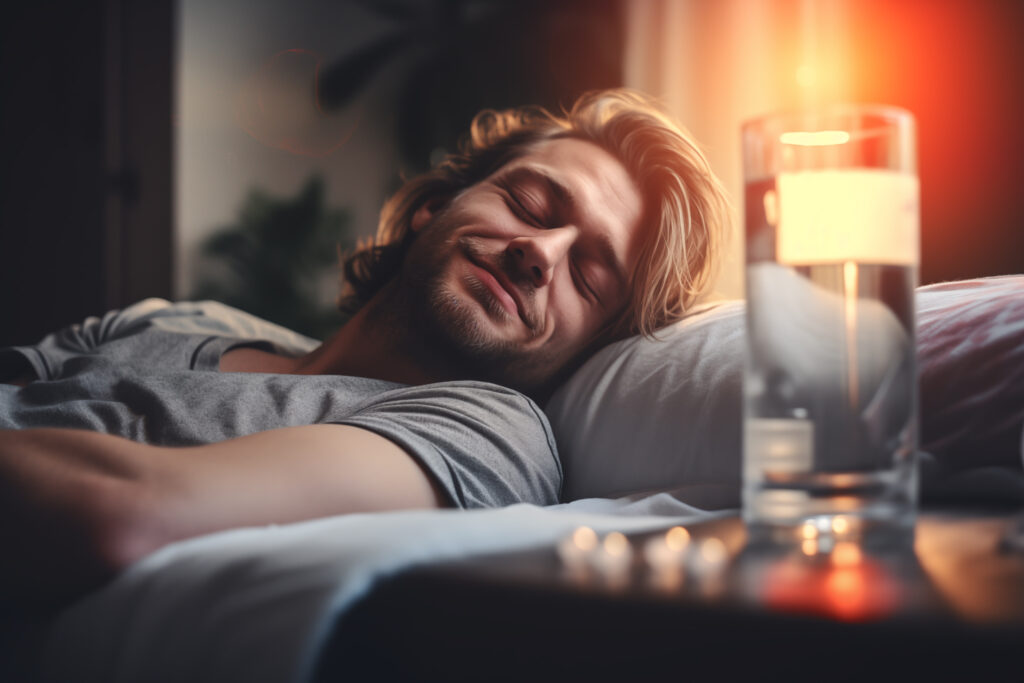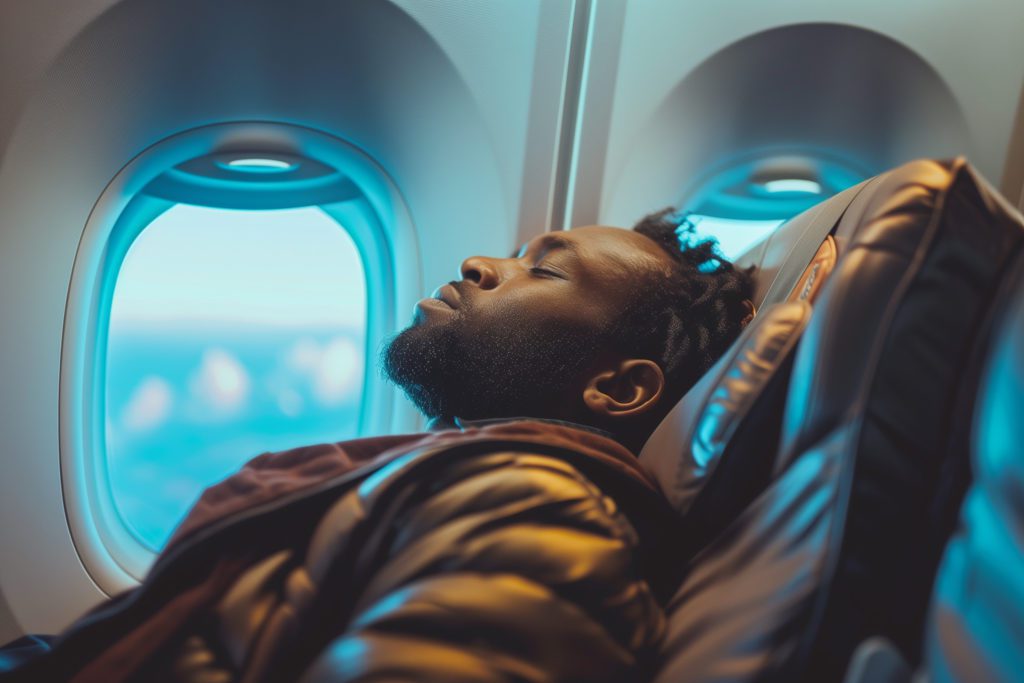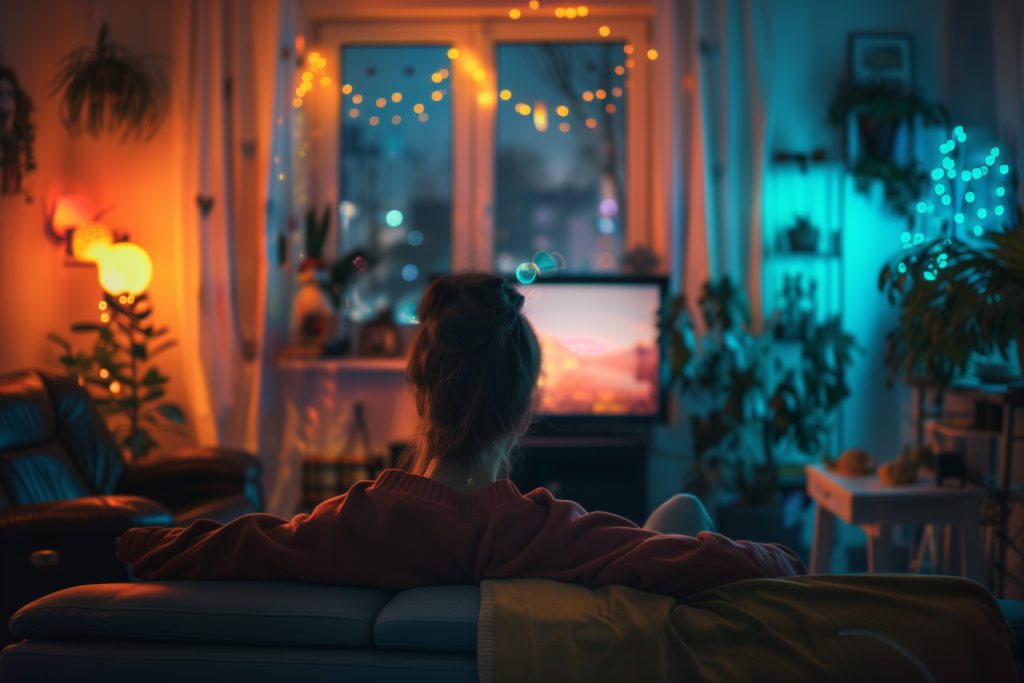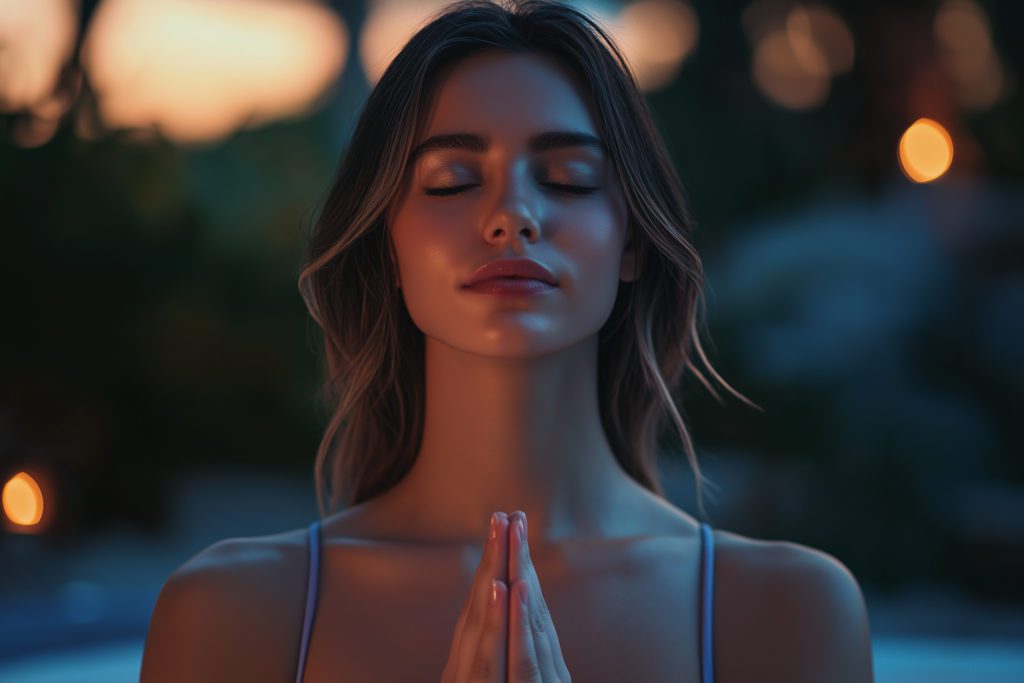
Blue Light and Sleep: Separating Myths from Facts
Blue light plays a critical role in regulating your circadian rhythm, defining moments of wakefulness and sleepiness. Explore blue light’s myths and facts.

Have you ever been told that staying off your phone before bed is the best way to improve your sleep, but then promptly ignored that guidance in favor of scrolling through social media late into the night?
Unfortunately, not even putting your phone down at bedtime is enough to reduce its potential sleep-suppressing qualities if you’ve spent all your time leading up to bed on it, and dimming the screen won’t help much, either. This is because our phones, as well as other electronics, produce blue light, which can affect our sleep.
There’s a lot that is said about blue light, and not all of it is true. Let’s separate what’s a myth from the facts.
What Is Blue Light?
Contrary to what you may think, blue light doesn’t always appear blue. For instance, sunlight is a big supplier of blue light, yet the sun isn’t blue.
Instead, blue light is used to refer to light with a wavelength between 380 to 500 nanometers. Of the visible light spectrum, or light that the human eye can see, blue light has the shortest wavelength and the highest energy.
Blue light is in abundance, with about one-third of all visible light considered to be blue light. A big contributor to this is the sun, but there are also artificial sources of blue light, including TVs, fluorescent lighting, smartphones, computers, and tablets.
However, there’s a problem with blue light: your eyes aren’t very good at blocking it out.
Our eyes have structures that protect them from certain kinds of light, such as damaging UV rays. However, they do not keep out blue light. Given how much blue light we’re exposed to, this can then cause a problem. On top of that, many of the sources of blue light include electronic devices, which we also tend to use close to our faces.
Blue light, in general, isn’t bad, though; it’s only disruptive before sleep, and that’s because of its effect on your circadian rhythm.
Blue Light and Circadian Rhythm
Your circadian rhythm is your 24-hour internal clock that helps to regulate your sleep-wake cycle, and it relies on light to continually reset it and keep it properly aligned with sunrise and sunset.
Light helps your body identify when to produce certain hormones. For instance, sunlight increases the production of cortisol, a hormone that promotes alertness. In comparison, darkness triggers the release of melatonin, a hormone that supports sleepiness. The sun serves as a standard supplier of light and dark, which is how it keeps your circadian regular.
However, electronics and artificial light can affect this cycle. Namely, the use of electronics and bright indoor lighting long after the sun has set can make your body think that daytime is longer, which keeps it from producing the hormones needed to initiate sleep. While all types of light can affect your circadian rhythm, blue light has the greatest impact—unfortunately, it is also the light that is most common.
When exposed to blue light during the day, it aids your circadian rhythm, but when this exposure happens at night, it can cause delays.
Busting Blue Light Myths
There is some truth to the effects of blue light on your sleep— specifically, it can suppress your release of melatonin, keeping you from falling asleep and potentially causing disrupted sleep during the night.
However, there are also many myths surrounding blue light; let’s wade through the myth to find what’s factual.
Myth: Blue Light Only Appears Blue
While blue light does cover the visible light spectrum of the color blue, it doesn’t always appear blue. In fact, the sun is the biggest supplier of blue light, and it appears white. Similarly, our cell phones also put off blue light, but appear white.
So, just because a device’s light does not look blue does not mean that it is not giving off blue light.
Myth: Blue Light Exposure at Night Does Not Affect Sleep
With blue light’s ability to suppress melatonin production, which is the hormone responsible for helping you feel sleepy, being exposed to blue light before bed can create challenges in falling and staying asleep. Knowing this, blue light can play a considerable role in your nighttime challenges.
Myth: Blue Light is No More Disruptive Than Other Light
While all light can disrupt your sleep, blue light has the greatest impact. One study showed that blue light had a two times greater delay in circadian rhythm compared to 555 nm light of the same intensity. So, if you can opt for other lighting, such as dim, yellow-toned light instead of bright overhead lighting, it is a better choice.
Myth: All Blue Light is Bad
The myth that all blue light should be avoided is not only incorrect but impossible since the sun gives off blue light,
While blue light should be avoided before bed (or even better—once the sun goes down), it serves many benefits during the day. Research has shown that exposure to blue light can improve our performance, attention, and reaction time. Additionally, being exposed to blue light during the day helps to fine-tune our circadian rhythm, then making nights easier.
So, all blue light is not bad; it just has an ideal time.
Using Blue Light to Sleep Better
While blue light in the evening can suppress your melatonin production and make it hard to fall asleep, if you’re strategic in your blue light exposure, you can improve your sleep.
The key to this lies in keeping your exposure to blue light to the daytime hours and limiting it when the sun dips below the horizon. It’s challenging to completely cut yourself off from blue light after the sun sets—after all, the modern world has allowed us to continue living even when daylight runs out—but you can lessen your exposure.
Some ways in which you can lessen blue light in the evening include using dim lights, such as a bedside lamp instead of a bright overhead light, and putting aside the electronics in favor of unplugged hobbies.
During the daytime, get as much exposure as you can—this will help you feel more alert. Research shows that exposure to bright, blue-enriched white light boosts wakefulness and wipes away any lingering sleepiness. While the sun is the greatest source of blue light, bright indoor light can offer these same benefits. So, keep the lights on during the day, but dim them down as it darkens outside.
When you keep your indoor light comparable to the light outside, your circadian rhythm will see a greater regularity, which can then improve your sleep.

Written by
Jessica G
Medical writer freelancer who has written hundreds of articles on varying topics. Masters of Engineering degree in Biomedical Engineering.
Download Pillow
Get help
Press & News
Legal
Connect
X (Twitter)
Company
Copyright © Neybox Digital Ltd.



